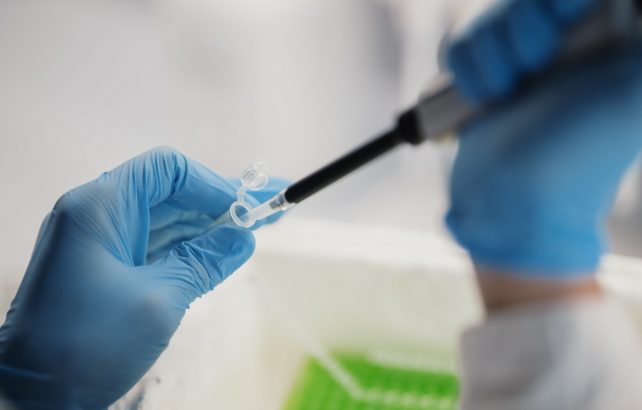VU Researchers Among the Authors of the Latest Study on Cancer Published in ‘Nature’
 In May, the results of a 7-year study on mutagenic exposures in kidney cancer genomes conducted by an extensive international scientific team were published in the prestigious journal ‘Nature’. Its authors include Prof. Sonata Jarmalaitė and Dr Rasa Sabaliauskaitė, researchers at the Life Sciences Center of Vilnius University and the National Cancer Institute. Scientists from 11 countries worldwide have analysed nearly 1,000 kidney cancer genome sequences and identified specific mutation profiles pointing to the causes of this disease. The study has confirmed that smoking, intracellular processes, and exposure to aristolochic acid are the main triggers of kidney cancer. The researchers have also discovered a new and unique mutation profile.
In May, the results of a 7-year study on mutagenic exposures in kidney cancer genomes conducted by an extensive international scientific team were published in the prestigious journal ‘Nature’. Its authors include Prof. Sonata Jarmalaitė and Dr Rasa Sabaliauskaitė, researchers at the Life Sciences Center of Vilnius University and the National Cancer Institute. Scientists from 11 countries worldwide have analysed nearly 1,000 kidney cancer genome sequences and identified specific mutation profiles pointing to the causes of this disease. The study has confirmed that smoking, intracellular processes, and exposure to aristolochic acid are the main triggers of kidney cancer. The researchers have also discovered a new and unique mutation profile.
The variation of mutagenic exposures in kidney cancer genomes cannot, in large part, be explained only by widely known cancer risk factors.
The study presented in this publication aimed to identify previously unknown risk factors leading to kidney cancer using a unique mutagenic algorithm that can identify carcinogens based on their mutation profile. For this purpose, 1,000 samples of kidney cancer tumours collected on five continents were analysed, including both high- and low-incidence regions. Lithuania, with the highest incidence rates of kidney cancer in Europe and the world, was one of the main targets of the study. A dominant type of mutation labelled SBS40 has been identified in the kidney cancer genomes from Lithuania and the Czech Republic, but the origin of this mysterious mutation still remains unknown.
In the Balkan region, the high incidence of kidney cancer has been attributed to exposure to aristolochic acid. This substance is found in traditional medicines and is associated with a specific mutation profile of kidney cancer. The cancer genome sequences analysed in this study have not shown any link between the mutation profile and obesity or hypertension, although they are known as common risk factors for kidney cancer.
Cancer develops due to the accumulation of genetic mutations that occur in the body and disrupt natural biological processes. Such accumulation can be caused by internal cellular processes, e.g. inaccurate DNA replication and repair, or by external environmental or lifestyle factors, including ultraviolet radiation from sun exposure or harmful compounds in cigarette smoke.
‘Each tumour has a unique DNA mutation profile. A wealth of information on the mutation profiles of thousands of tumours has already been collected. The organised data can also be used to create a snapshot of mutational cancer – this kind of photograph is known as mutograph. It can reflect biological processes, the effects of carcinogens, regional patterns, and so on’, says Prof. Jarmalaitė, one of the researchers in this study.
The study involved collecting clinical samples from patients and completing questionnaires on health indicators and lifestyle habits. The genome sequencing of the tumour samples and leukocytes was performed at the Sanger Institute in Cambridge. Although this research was delayed due to the COVID-19 pandemic, the article published in the scientific journal ‘Nature’ presents the results of genome sequencing studies on 16 kidney tumour samples collected in Lithuania. The remaining samples will be used for further research.
Cancer mutagenesis research will continue through the ‘PROMINENT’ project, conducted by Cancer Research UK, which will look at the early stages of carcinogenesis. It is hoped that this study will help to identify the mysterious causative factor of the dominant SBS40 mutation type in Lithuania and to take preventive measures to reduce the incidence of kidney cancer.